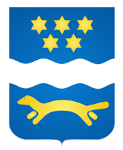Born in Italian Calabria in 1711, this soldier and adventurer belongs to the Trenk family, descendants of an old Prussian family. The family, led by Father Ivan, moved to the area of the Vojna Krajna, the border of the Austrian Empire with Turkey, in the area of present-day Croatia. 1723. Father Ivan becomes commander of a fortress Brod (in Slavonski Brod) under construction, and little Franjo moves with his mother to nearby Hungary. His childhood is marked by numerous mischiefs (which include accidental self-immolation with firearms, duels and fights), and although he excels in teaching, one can clearly see that he will develop into an unrestrained character. After the death of one of his two siblings, he moves to Brod with his other brother, a fortress under his father’s command, where Franjo continues to give his father a headache.
In 1727 he joins the army as a barge in the regiment of his father’s friend, Nicholas Palffy. As he continues to challenge duels and seduce local girls, his father withdraws him from service to the family estate and later he marry Josephine Tiller, the daughter of the comanderof the Petrovaradin Fort.
1732 Francis’s father is removed from his position as commander of the Ship Fort, for embezzlement and goes to Bavaria on command. Francis remains on the family estate and brings together a group of 20 guys, a” pandurs”, the nucleus of his future regiment. After his child and wife die from the plague, he enlists in the Russian army in the war against the Turks, but is sentenced to death for disobeying orders. The harsh verdict wasencouraged by the fact that he was the lover of the wife of the chairman of the court, Count Romjancov. He was brought before the firing squad in 1740 and pardoned in last moment. He spends 6 months on forced labor at the Kiev fort and then expelled from Russia (on the Russian-Polish border they confiscate all his property, including two devotees, a Turkish Maurice and a Jewish Rebekah).
After Maria Theresa’s arrival to Austria, Austria is at war and Baron Trenk offers to gather and equip 1000 pandurs in Slavonia, well trained through the war with the Turks, and putting them into service, which is accepted.
This is how the famous Slavonian Pandurs emerge, stout guys, equipped with a long rifle, with 4 belt guns and a short sword, at first glance similar to Turkish soldiers. Their trademark is a red hooded cloak. Franjo also added to unit, military music, one of the first in Europe. Before leaving Slavonia, he captured a group of 300 Hajduks, rebels who terrorized Slavonian villages and forced them to join his pandurs. This unit, which was not formally part of the regular Austrian army, was celebrated at numerous European fronts, performing often the most difficult tasks of war, while infusing fear into the bones of enemies. During this war, Baron Trenk was often injured.
In the fall of 1745, the Austrian army was defeated and rumors spread in Vienna that Franjo was to blaim (he allegedly released the captured Prussian King Friedrich II). Accusations of embezzlement, disobedience and fornication have also arisen in military court. The empress Marija Terezija saves him from the death penalty and he is convicted to life sentence in the Spielberg fort near Brno in the Czech Republic where he lives until his death in 1749 (at the age of 39).
Trenk’s autobiography is the most widely read book of that century and has been translated into all major world’s languages. Over 70,000 people visit his grave annually.











